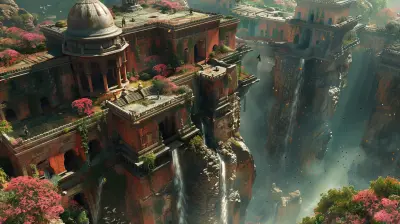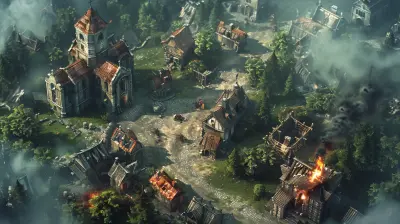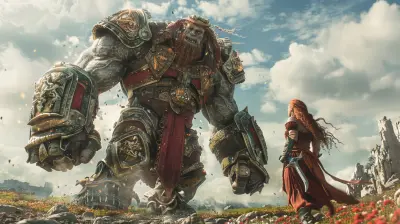The Role of Culture and Myth in Shaping Interactive Story Worlds
2 October 2025
Video games have grown way beyond just being pixelated distractions or mere mechanics. They’ve evolved into something far more powerful—gateways to entire universes. But have you ever stopped mid-quest or after an intense cutscene and asked yourself, “Why does this world feel so real… yet so fantastical?” That’s not an accident. It’s culture and myth weaving their magic into the design, giving games that rich, textured storytelling we all crave.
Let’s dig deep into how culture and myth breathe life into interactive story worlds. You’ll never look at your favorite games the same way again.
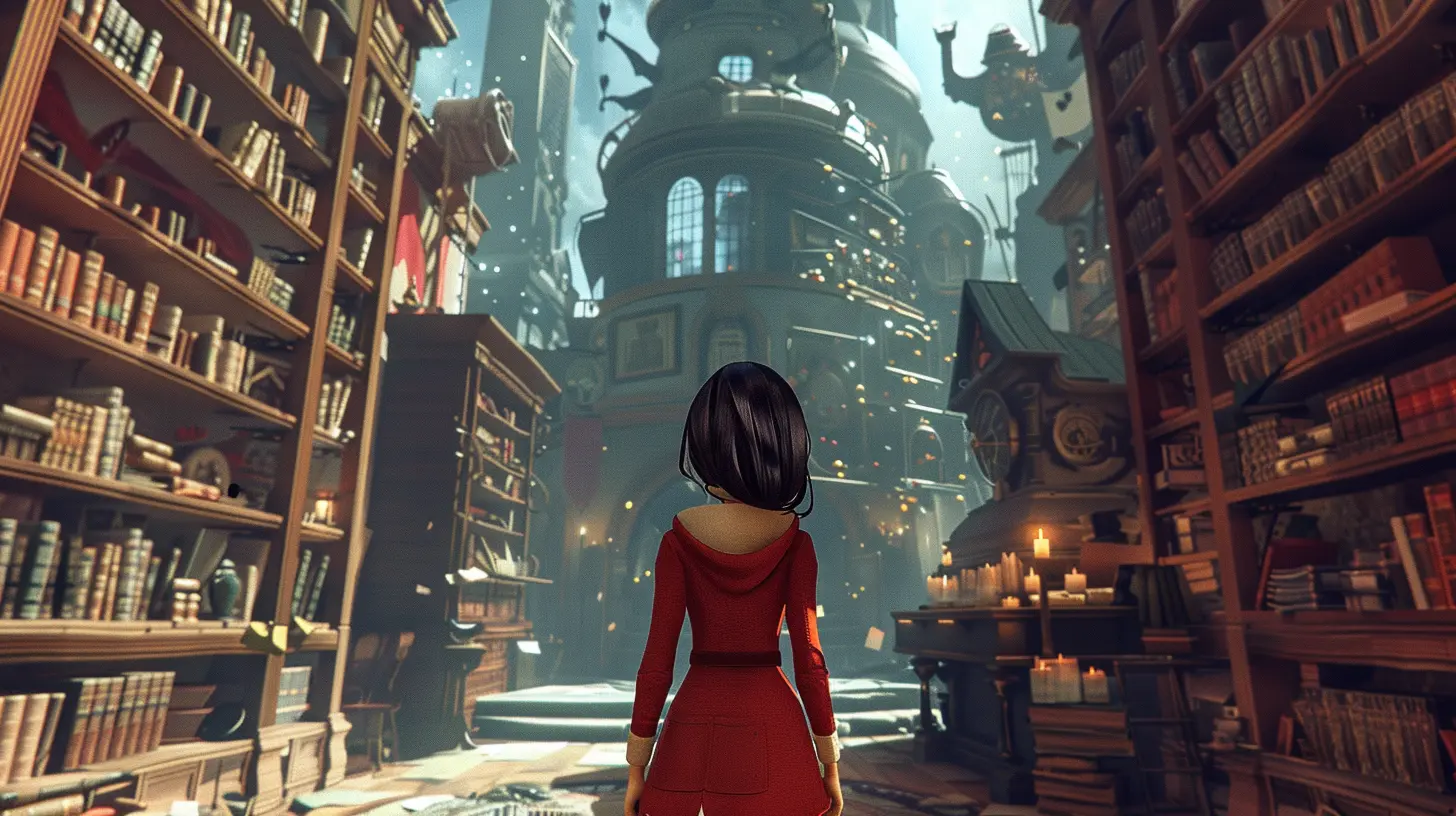
Why Culture and Myth Matter in Games
Every world we step into in a game—whether it’s a post-apocalyptic wasteland or a sprawling medieval kingdom—is rooted in something. It could be a forgotten legend, a real-world philosophy, or the traditions of a distant culture. These aren’t just decorative backdrops. They’re the building blocks that shape societies, conflicts, characters, and even gameplay mechanics.Creating a story without any cultural or mythological influence would be like trying to bake bread without yeast—it might look the part, but it won’t rise.
Player Immersion: The Secret Sauce
When a game draws from authentic cultural references or retells ancient myths with a twist, the world becomes believable. It feels lived-in. You feel like you've walked into a place where people have history, values, and purpose.Think about it: Would "Assassin’s Creed" feel the same without its historical and cultural attention to detail? Would "God of War" hit as hard without its bold reinterpretation of Norse and Greek mythology?
Exactly.
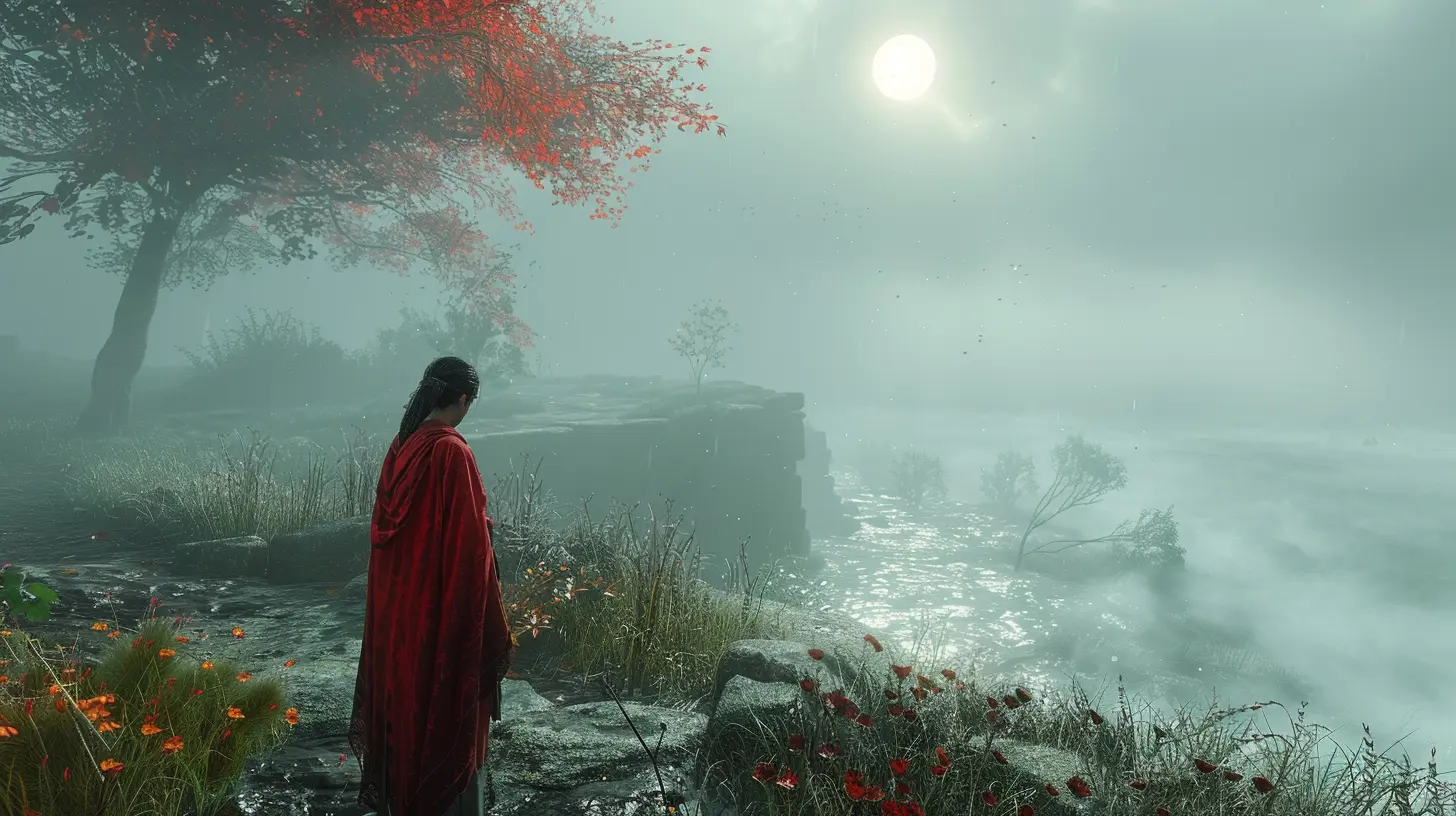
Mythology: The Ultimate Story Toolkit
Mythology is like a narrative treasure chest filled with timeless themes—revenge, love, betrayal, heroism, and of course, epic quests. Developers know this. That’s why they constantly dip into this well to create stories that resonate deeply with us.Here’s how myth plays its part:
Archetypes: The Familiar Faces
We all know the hero’s journey, right? The call to adventure, the wise mentor, the dark cave, the final showdown. These are classic story beats, and they’re often lifted straight from myth.Take Zelda, for instance. Link is the hero of time. He faces trials, gains wisdom, and defeats evil. Sound familiar? It's practically the monomyth, Joseph Campbell-style, retold in a green tunic.
Gods, Monsters, and Magic
Whether it’s facing Medusa in a dungeon or summoning gods for a boss fight, games love mythical creatures. They add stakes, mystery, and awe. Mythology gives devs a library of supernatural characters and weird beasts that players instinctively get excited (or terrified) about."Dark Souls," anyone? That’s mythology on steroids—twisted, dark, and unforgettable.

Culture: The DNA of World-Building
Culture, on the other hand, brings nuance. It’s what makes a fantasy world feel grounded and diverse, rather than just another clone of medieval Europe.Language and Symbols
Look at how "The Elder Scrolls" uses different languages and scripts for its races. The Khajiit speak in a rhythmic, poetic pattern. The Dunmer have their own pantheon. These aren’t just stylistic choices—they’re cultural.It’s the cultural quirks that make each race, faction, or nation feel distinct. They’ve got their own histories, beliefs, aesthetics, and even cuisines. That’s how you make a world feel alive.
Clothing, Architecture, and Rituals
Visual cues matter too. When developers borrow styles from African tribal attire, Japanese feudal armor, or Incan temples, they’re doing more than decorating. They’re signaling culture. They’re saying, “This people came from somewhere. They believe in something.”It turns the world from a flat map into a thriving ecosystem.
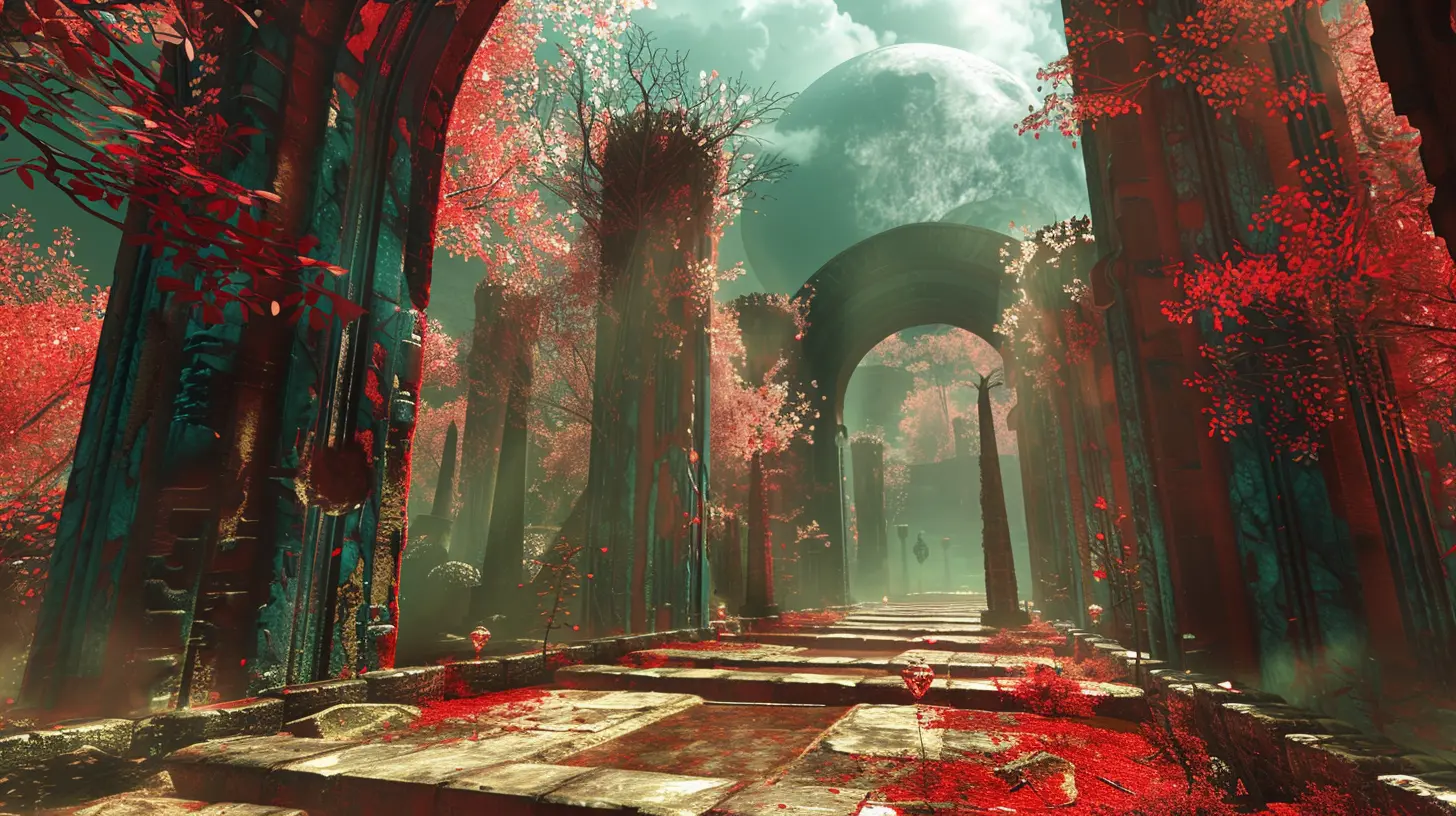
Real-World Examples of Culture and Myth in Games
Let’s break down some killer examples of how myth and culture shape some of the most iconic game worlds out there.1. God of War (Norse and Greek Mythology)
You knew this one was coming. “God of War” doesn’t just throw Kratos into a mythological backdrop—it makes the myths personal. The Greek series dealt with fate, vengeance, and the downfall of the gods. The Norse reboot is all about redemption, destiny, and breaking cycles.The best part? These aren't stories about mythology. They're stories through mythology.
2. Ghost of Tsushima (Japanese Culture)
This game is a love letter to samurai cinema and Japanese history. From the rituals of tea ceremonies to the styles of poetry and armor—it bleeds cultural authenticity. Players weren't just fighting Mongols; they were experiencing the soul of Tsushima island.3. Horizon Zero Dawn (Post-Apocalyptic Tribalist Cultures)
Despite being set in the future, “Horizon” feels ancient. It blends speculative sci-fi with tribal traditions, exploring how myths can evolve from forgotten tech. The way Aloy uncovers the “truth” behind her world shows how culture and myth intersect, especially when history is lost or distorted.4. Hellblade: Senua's Sacrifice (Celtic Culture and Norse Mythology)
This game is a haunting journey into psychosis, wrapped in Norse and Celtic themes. It’s not just using myths for flair—it’s using them to explore trauma, mental health, and identity. The cultural setting enhances the emotional punch and adds layers to Senua’s struggle.5. Okami (Shinto Mythology)
Talk about style and substance! “Ōkami” is literally a playable Japanese painting inspired by Shinto myths. You control Amaterasu, the sun goddess, in wolf form. Every mechanic—from brush strokes to enemy designs—is soaked in spirituality and folklore.The Emotional Impact of Myth and Culture
Now here’s the meat of it—why does this matter to you, the gamer?Because myth and culture don’t just influence the setting—they shape how you feel. They tap into universal experiences, fears, and fantasies. When a myth-based story world is done right, you’re not just playing a game. You’re participating in something ancient, something tribal. It's the digital campfire of the modern age.
Ever notice how you feel more connected to characters who are bound by oaths, honor, or divine purpose? That’s myth. That’s culture. It hits a deep chord.
How Indie Games Use Myth and Culture Boldly
It's not just the AAA titles crushing it. Indie developers are often the boldest when it comes to playing with cultural themes and mythological influences.Never Alone (Kisima Inŋitchuŋa)
Based on Iñupiat mythology and co-developed with Alaska Native storytellers, “Never Alone” is both a game and a cultural project. It brings an Indigenous story to life in a way that’s respectful, interactive, and deeply moving.Mulaka
Inspired by the Tarahumara people of Northern Mexico, this game uses real legends, language, and settings. It’s a blast to play, but it’s also educational—without being preachy.These games do more than entertain. They share. They preserve. They let players feel what it’s like to belong to different worlds.
Cultural Appropriation vs. Cultural Appreciation
Okay, let’s address the wild boar in the room.Using myths and culture in games is powerful—but it’s gotta be handled with care. There’s a thin line between homage and caricature. Game devs need to research, collaborate with cultural experts, and most importantly—respect the source material.
Lazy stereotypes? Big no. Deep, authentic representation? That’s the goal.
And as players, we should demand better. We should value games that treat cultures and myths not as content to be mined, but as living traditions worth honoring.
What Does the Future Hold?
The future of interactive storytelling is multicultural, multi-mythical, and multi-layered.We’re already seeing more games that highlight underrepresented cultures and myths—from Aboriginal Dreamtime tales to West African folklore. With developers becoming more global and players hungry for fresh stories, expect myth and culture to play an even bigger role in the worlds we explore.
And with tech evolving—think VR, AI-driven narratives, and real-time story generation—we might one day shape myths of our own.
Final Thoughts
Culture and myth aren’t just flavor. They’re the soul of interactive story worlds. They give meaning to mechanics, depth to character arcs, and emotion to every choice you make.The next time you dive into a rich game world and feel that sense of awe? That’s the echo of centuries-old stories calling out to you.
So, whether you’re slaying gods, sneaking through temples, or just chatting with an NPC in a dusty old town—remember, you’re not just playing. You’re participating in a digital mythology.
And in the vast universe of gaming, that’s something seriously magical.
all images in this post were generated using AI tools
Category:
Interactive StorytellingAuthor:

Lucy Ross
Discussion
rate this article
1 comments
Zia McKnight
What a delightful read! Exploring how culture and myth shape interactive story worlds adds such depth and richness to gaming. It's amazing how these elements create immersive experiences that connect us to diverse narratives. Keep up the great work!
October 8, 2025 at 4:39 PM

Lucy Ross
Thank you so much for your kind words! I'm glad you enjoyed the article and appreciate the importance of culture and myth in gaming narratives.
